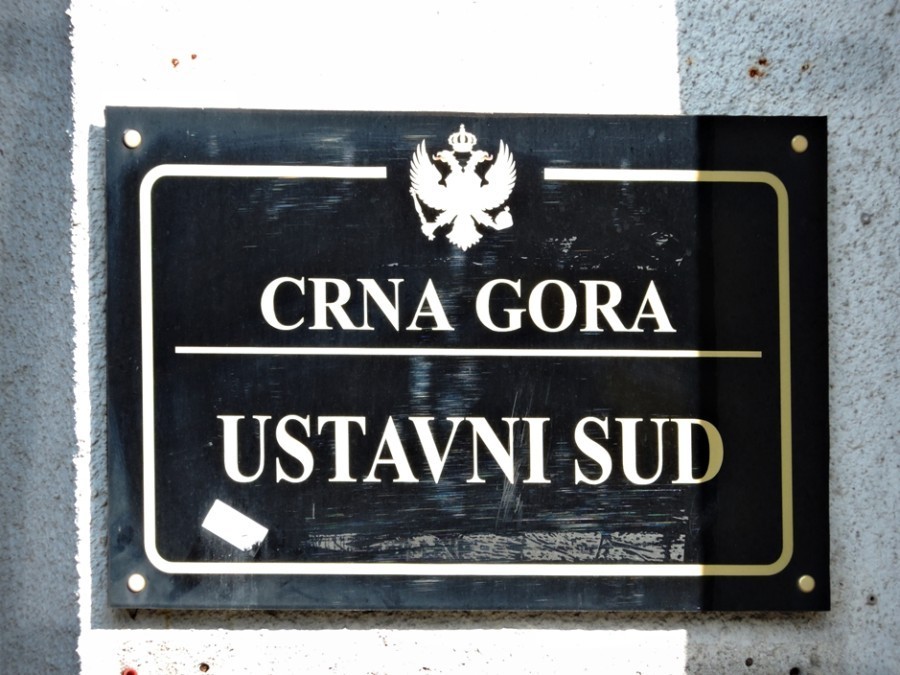
ELECTION OF JUDGES OF THE CONSTITUTIONAL COURT IS PROOF OF THE LEGITIMACY OF THE STATE
28/11/2022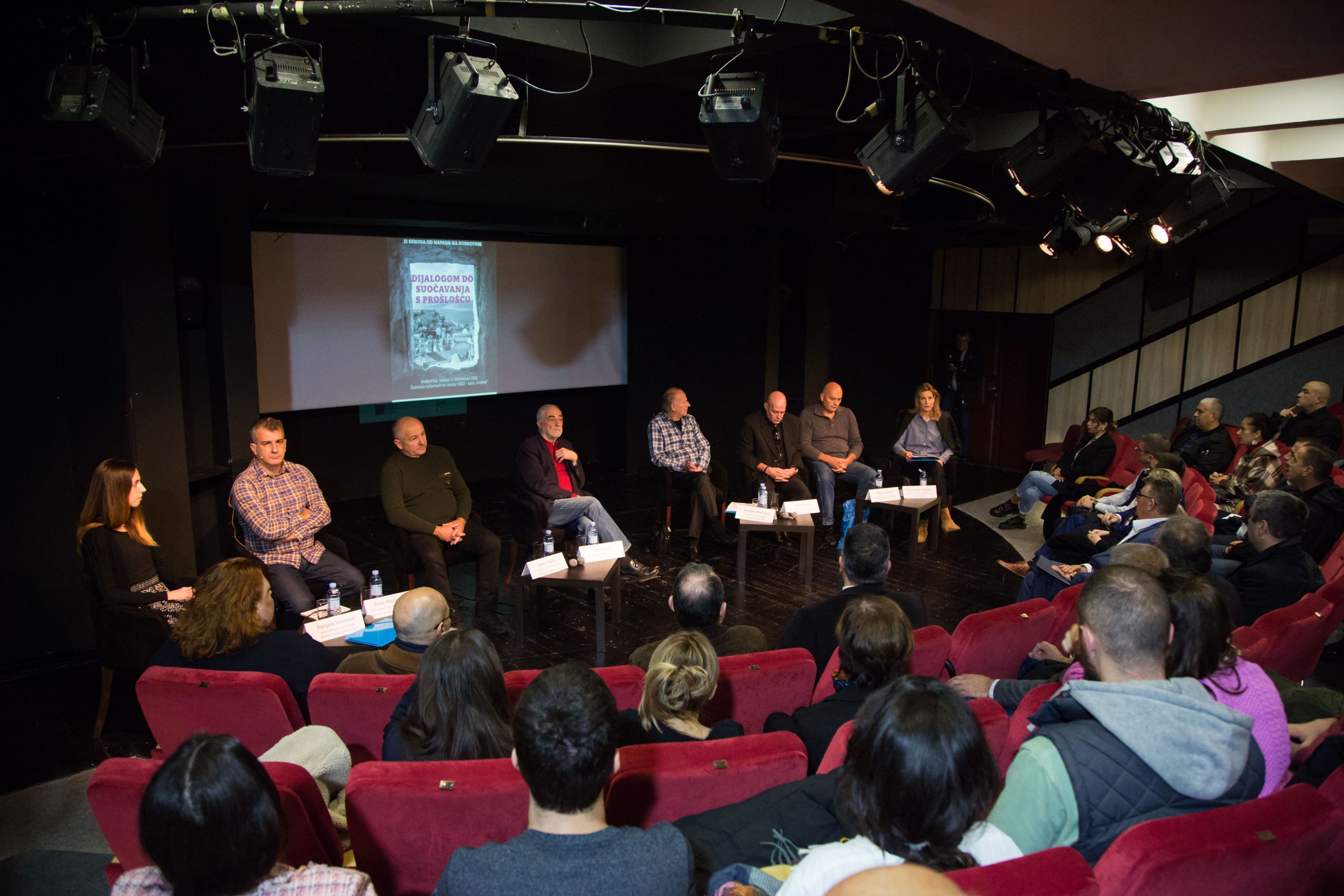
Message from the conference “Dialogue to Face the Past”: All for Peace, All Against War
07/12/202231 YEARS SINCE THE AGGRESSION OF THE JNA ON THE AREA OF DUBROVNIK AND THE SHELLING OF THE OLD TOWN
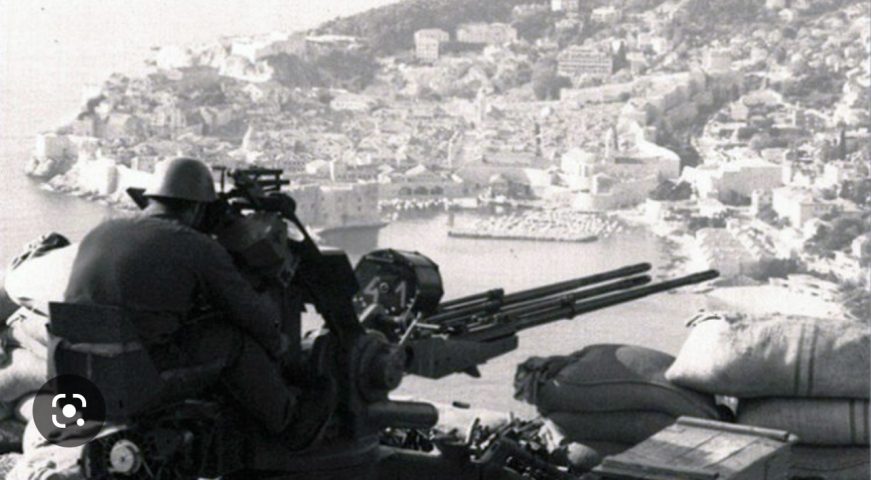
Photo: Pobjeda (Edicija “Rat za mir”)
Human Rights Action (HRA), Centre for Civic Education (CCE) and Documenta – Center for Dealing with the Past remind that 31 years ago, on 6 December 1991, the Yugoslav People’s Army (JNA) carried out the heaviest shelling of Dubrovnik during of the aggression it led from 1 October 1991 to 31 May 1992 against the Republic of Croatia.
The largest number of JNA members, over 7000, who took part in the attack on Dubrovnik, were from Montenegro. A special unit of the Ministry of the Interior of Montenegro was also involved in the attack. Confronting this shameful episode from the recent past is necessary to understand delusions and prevent the same from happening again.
“The war operation Dubrovnik was a campaign of conquest, destruction and robbery against the Republic of Croatia“, wrote about the participation of Montenegro in the war against Croatia historians professor Šerbo Rastoder and M.Sc. Novak Adžić in the text about the participation of Montenegro in the war against Croatia.
“It was an unjust, war of conquest against Croatia, in which Montenegro was embarrassed, as it was harnessed to the politics of the JNA and Slobodan Milošević,” said Nikola Samardžić, Minister of Foreign Affairs of the Socialist Republic of Montenegro at the time of the attack on Dubrovnik, in his testimony on the trial of General Pavlo Strugar before the Hague Tribunal.
On that 6 December 1991, 19 people lost their lives, while 60 were injured and wounded. Several hundred shells were fired at the old city centre, protected as a UNESCO world cultural heritage. Six buildings were completely destroyed, several of them damaged, as well as the main street Stradun. The old town was exposed to an artillery attack for more than ten and a half hours. Inside its walls, Pavo Urban (23) and Tonči Skočko (18) died, while three people were seriously wounded.
The International Criminal Court for the former Yugoslavia (Hague Tribunal) sentenced JNA colonel-general Pavle Strugar to seven and a half years in prison and Admiral Miodrag Jokić to seven years in prison for the crimes committed during the illegal shelling of Dubrovnik on 6 December 1991. Admiral Jokić pleaded guilty and was convicted of command responsibility for the actions of his subordinates, but the prosecutor’s position was that he did not issue the shelling order. On the same day, he apologized for the attack to the people of Dubrovnik and the Croatian minister, expressing regret for the victims and damage. JNA captain Vladimir Kovačević – Rambo, from Nikšić, was also accused of the attack on Dubrovnik, but the Hague Tribunal refused to try him due to his incompetence for trial. Later, the court in Belgrade, where Kovačević resides, rejected the indictment against him.
The Hague Prosecutor’s Office dealt only with the shelling of the Old Town on 6 December 1991, and not with other crimes committed by members of the JNA during the entire six months of the conquest of the wider Dubrovnik area.
During that period, 116 civilians died, 194 Croatian fighters and 165 members of the JNA from Montenegro were also killed, 443 people were imprisoned in Morinj (Montenegro) and Bileća (Bosnia and Herzegovina) camps in inhumane conditions, 33,000 people were deported, 2,071 residential buildings were destroyed and systematically looted private and public goods, the city of Dubrovnik was without electricity and water for 138 days, as well as under naval and air blockade. These data indicate the conduct of numerous war crimes.
However, Montenegro has so far prosecuted and punished only four people who participated in the abuse of prisoners in the JNA camp in Morinje, on the territory of Montenegro. The State Prosecutor’s Office of Montenegro has the obligation to prosecute crimes committed during the war in Croatia on its own initiative, and it should cooperate with the State’s Attorney Office of the Republic of Croatia concerning this matter.
According to the latest information received from the County Court in Split, warrants have been issued against former military officers of the JNA from Serbia and Montenegro, who are being charged before that court with war crimes on the Dubrovnik battlefield. The accused in Croatia are Jevrem Cokić, Mile Ružinovski, Pavle Strugar, Miodrag Jokić, Branko Stanković, Obrad Vičić, Radovan Komar, Vladimir Kovačević, Milan Zec and Zoran Gvozdenović. Miodrag Jokić died in October of this year.
Since Serbia and Montenegro have no obligation to extradite their citizens to Croatia on charges of war crimes, it is unclear why the Croatian judiciary did not deliver these cases to Serbia and Montenegro for prosecution.
Prosecuting those responsible for war crimes is an obligation of the state according to domestic and international law, a task in the EU accession process and a moral debt to the victims.
Tea Gorjanc Prelević, Executive Director, Human Rights Action (HRA), Podgorica
Daliborka Uljarević, Executive Director, Centre for Civic Education (CCE), Podgorica
Vesna Teršelič, Director, Center for Dealing with the Past – Documenta, Zagreb



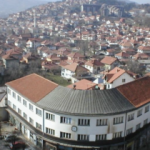
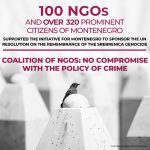


 English
English